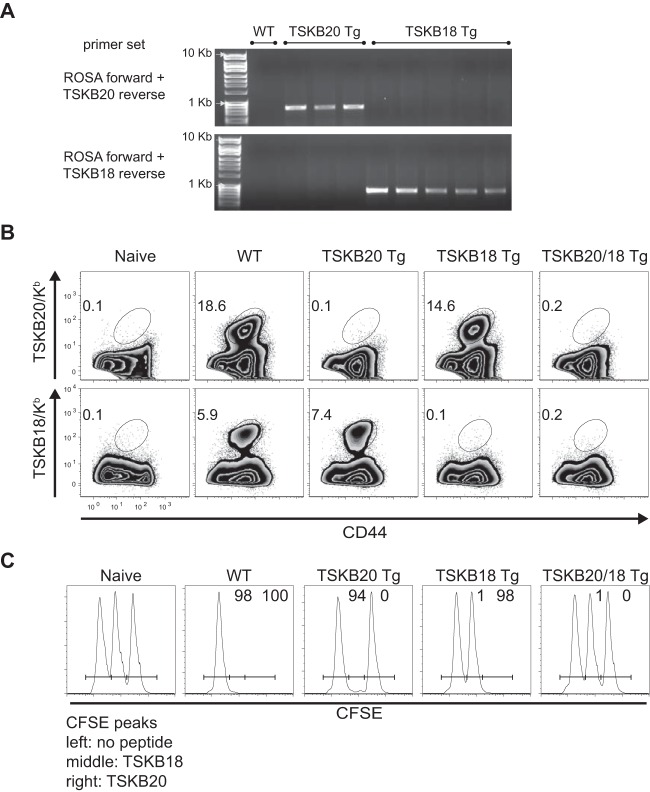FIG 1.
Transgenic expression of TS-derived peptides results in epitope-specific tolerance. (A) PCR products of the transgene construct amplified using TSKB20 or TSKB18 construct-specific primers from gDNA of transgenic founder mice but not from wild-type C57BL/6 gDNA. The primers used were located in the ROSA26 promoter sequence and the unique OVA/TSKB20 or OVA/TSKB18 insert's 3′ restriction sites. (B) Splenocytes from naive or acute-phase T. cruzi-infected WT, TSKB20 Tg, TSKB18 Tg, or TSKB20/18 Tg mice were stained for CD44 and TSKB20/Kb or TSKB18/Kb tetramers. Histograms are gated on CD8+ CD4−, and numbers indicate the percentages of CD44hi tetramer-positive CD8+ cells. Data are from infection-matched individuals and are representative of 2 to 4 experiments per acutely infected group. (C) Naive splenocytes were pulsed with 1 μM TSKB20, 1 μM TSKB18, or no peptide and then labeled with high, medium, or low concentrations of CFSE, respectively. At 27 days postinfection, equal numbers of each population were cotransferred i.v. into mice and detected in the spleens after 16 h. Histograms are gated on CFSE+ lymphocytes. Numbers indicate the percentages of specific lysis measured for representative individuals compared with naive mice. Data are from two similar experiments (n = 4 to 7 mice per infected group).

